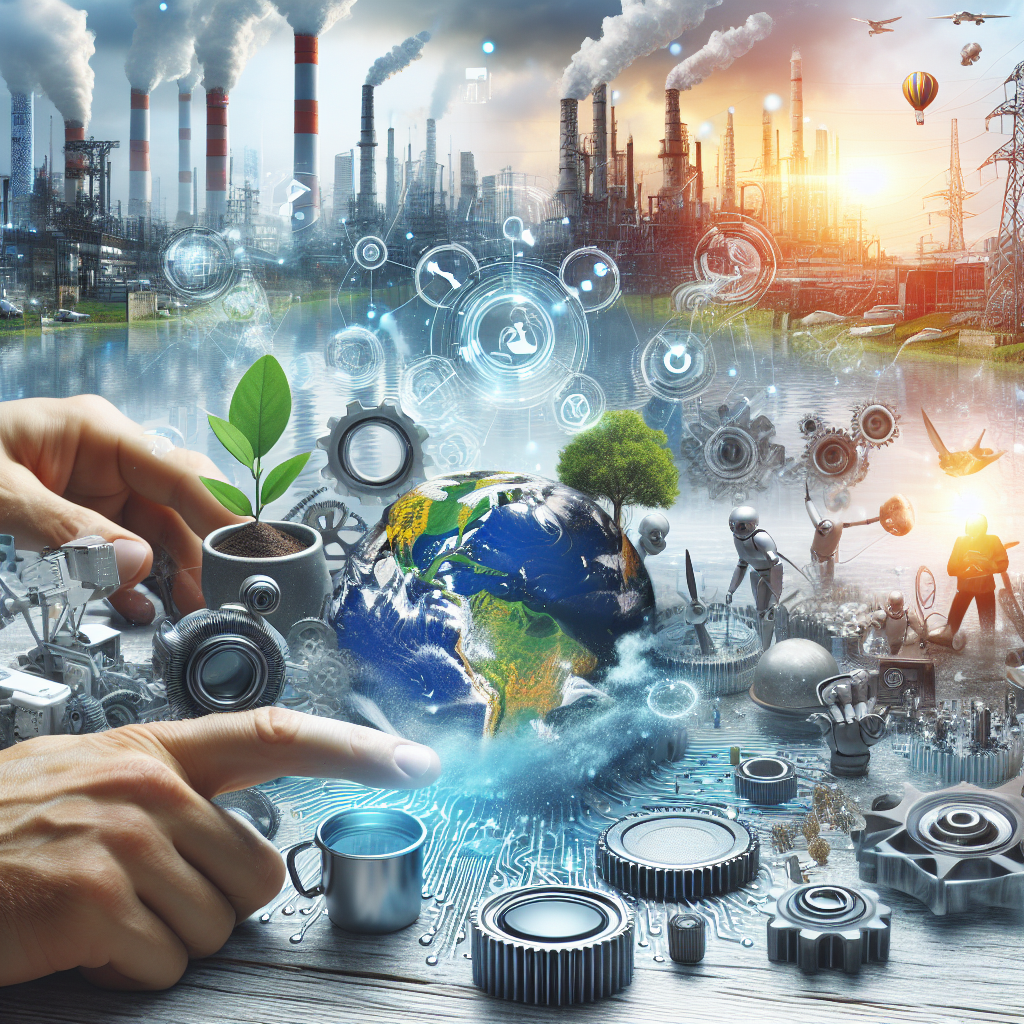Teknologi membantu mengatasi perubahan iklim sosial dengan memberikan solusi inovatif untuk mengurangi emisi, meningkatkan efisiensi energi, dan mempromosikan kesadaran lingkungan.
Peran Teknologi dalam Mengatasi Perubahan Iklim Sosial
-
Table of Contents
- Introduction
- The Impact of Climate Change on Social Systems in Indonesia
- 1. Displacement and Migration
- 2. Food Security
- 3. Health and Well-being
- The Role of Technology in Addressing Social Changes
- 1. Early Warning Systems
- 2. Sustainable Agriculture
- 3. Renewable Energy
- 4. Digital Connectivity
- Challenges and Opportunities
- 1. Accessibility and Affordability
- 2. Capacity Building
- 3. Policy and Governance
- Conclusion
Introduction

Climate change is a global issue that affects various aspects of society, including social dynamics. In Indonesia, a country known for its rich biodiversity and cultural diversity, the impacts of climate change on social systems are becoming increasingly evident. However, technology has emerged as a powerful tool in addressing these social changes caused by climate change. This article explores the role of technology in mitigating and adapting to social changes in Indonesia.
The Impact of Climate Change on Social Systems in Indonesia
1. Displacement and Migration
One of the most significant social changes caused by climate change in Indonesia is displacement and migration. Rising sea levels, extreme weather events, and changing rainfall patterns have led to the loss of homes and livelihoods for many communities, particularly those living in coastal areas. As a result, people are forced to migrate to safer regions, leading to social disruptions and the formation of new communities.
2. Food Security
Climate change also poses a threat to food security in Indonesia. Changing weather patterns and increased frequency of extreme weather events, such as droughts and floods, affect agricultural productivity. This, in turn, impacts the availability and affordability of food, leading to social unrest and potential conflicts over resources.
3. Health and Well-being
The changing climate also has implications for the health and well-being of Indonesians. Increased temperatures and changing rainfall patterns contribute to the spread of vector-borne diseases, such as dengue fever and malaria. Additionally, extreme weather events can result in injuries, displacement, and psychological distress. These health impacts further exacerbate social inequalities and disrupt community dynamics.
The Role of Technology in Addressing Social Changes
1. Early Warning Systems
Technology plays a crucial role in mitigating the social impacts of climate change by providing early warning systems. These systems use various technologies, such as weather monitoring devices, satellite imagery, and data analytics, to predict and alert communities about impending extreme weather events. By providing timely information, early warning systems enable communities to take necessary precautions, evacuate if needed, and minimize the potential social disruptions caused by such events.
2. Sustainable Agriculture
Technology also offers solutions to address the challenges faced by the agricultural sector due to climate change. Precision agriculture techniques, such as remote sensing, drones, and soil sensors, help farmers optimize resource use, improve crop yields, and adapt to changing weather patterns. Additionally, the use of climate-resilient crop varieties and innovative irrigation systems can enhance food security and reduce social tensions arising from resource scarcity.
3. Renewable Energy
Transitioning to renewable energy sources is another way technology can mitigate social changes caused by climate change. Indonesia, with its abundant solar and geothermal resources, has immense potential for renewable energy development. By harnessing these resources, the country can reduce its reliance on fossil fuels, mitigate greenhouse gas emissions, and improve access to electricity in remote areas. This transition not only addresses the social impacts of climate change but also creates new job opportunities and promotes economic development.
4. Digital Connectivity
Digital connectivity plays a vital role in addressing social changes caused by climate change. Access to information and communication technologies (ICTs) enables communities to stay informed, connected, and resilient in the face of climate-related challenges. ICTs facilitate the dissemination of climate change information, support community-based adaptation initiatives, and provide platforms for knowledge sharing and collaboration. By bridging the digital divide, technology ensures that vulnerable communities have equal access to resources and opportunities for adaptation.
Challenges and Opportunities
While technology offers promising solutions, there are challenges that need to be addressed to maximize its potential in addressing social changes caused by climate change in Indonesia.
1. Accessibility and Affordability
Ensuring equitable access to technology and its affordability is crucial. Many vulnerable communities, particularly those in remote areas, may lack the necessary infrastructure and resources to adopt and benefit from technological solutions. Efforts should be made to bridge the digital divide and provide support to marginalized communities to ensure they can access and utilize technology effectively.
2. Capacity Building
Building the capacity of individuals and communities to effectively use technology is essential. Providing training and education on the use of technology for climate change adaptation and mitigation can empower communities to take ownership of their resilience efforts. This includes enhancing digital literacy, promoting the use of open-source technologies, and fostering innovation at the grassroots level.
3. Policy and Governance
Effective policies and governance frameworks are needed to support the integration of technology into climate change adaptation and mitigation strategies. Governments should prioritize investments in technology infrastructure, incentivize the adoption of sustainable technologies, and establish regulations that promote the responsible use of technology for climate action. Collaboration between government, private sector, and civil society is crucial to create an enabling environment for technology-driven solutions.
Conclusion
Technology has the potential to play a transformative role in addressing social changes caused by climate change in Indonesia. From early warning systems to sustainable agriculture practices, renewable energy, and digital connectivity, technology offers a range of solutions to mitigate and adapt to the impacts of climate change. However, addressing challenges related to accessibility, capacity building, and policy frameworks is essential to ensure that technology benefits all communities, particularly the most vulnerable. By harnessing the power of technology, Indonesia can pave the way for a more resilient and sustainable future.







